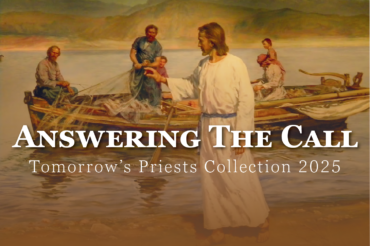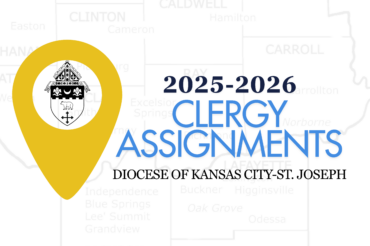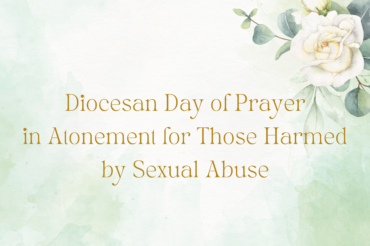The Ultimate Decision

God’s Word in Everyday Living
Marc Cardaronella
This week’s second reading, Colossians 1:12-20, is a Christological powerhouse. There are many profound things I could write about from this short passage. But one stands out above the others deserving the spotlight. It’s one sentence that captures the heart of Christian faith. In verses 1:13-14 Paul says, “He has delivered us from the dominion of darkness and transferred us to the kingdom of his beloved Son, in whom we have redemption, the forgiveness of sins.” This simple verse is the core of Christian belief, the central point of all Catholicism — how we are saved.
Imagine you’re in an ancient Jewish courtroom standing trial. The charge is association with someone who committed an offense. If found guilty, that association makes you subject to punishment, as well. However, if the court finds you not guilty, you will be “justified,” or found in right standing. In this case you’d be exempt from punishment. Not only that, your status in the community would be restored. Instead of an outcast criminal, you’d be again considered an upright member. In Israel, the Mosaic Law also played a part in the trial. A guilty verdict could mean the loss of more than mere community status. Inclusion in the community was tied up with God’s covenant. Lose secure standing in the covenant and you lose its blessings, as well. The stake is salvation.
Paul’s language about salvation comes from the courtroom. He’s speaking in terms his audience would understand, the ancient juridical process. Justification comes up a lot in another of Paul’s letters, Romans. In particular, verses 5:16-19:
“And the free gift is not like the effect of that one man’s sin. For the judgment following one trespass brought condemnation, but the free gift following many trespasses brings justification. If, because of one man’s trespass, death reigned through that one man, much more will those who receive the abundance of grace and the free gift of righteousness reign in life through the one man Jesus Christ. Then as one man’s trespass led to condemnation for all men, so one man’s act of righteousness leads to acquittal and life for all men. For as by one man’s disobedience many were made sinners, so by one man’s obedience many will be made righteous” (emphasis added).
This passage can be difficult to understand. Simply put, Adam’s sin led to condemnation for all of humanity because as the first-born he represented everyone. As the first-born of the new creation, Jesus Christ represents everyone, as well. The free gift of Christ’s life sacrificed on the Cross makes up for the trespass of Adam. The second man’s righteousness brings acquittal from the first man’s condemnation. Now this acquittal is meant for all, but at first Jesus is the only recipient. How does it get to the rest of humanity? All of us are given a choice. Associate yourself with the first man, Adam, and you incur the result of his sin … loss of eternal relationship and communion with the Father. Or, you could believe in Jesus’ promise of eternal life in relationship with God and associate yourself with him.
It’s like a class-action lawsuit. Say someone sued a company for a faulty product, and because you bought that product, you’re given the decision to side of the plaintiff. If he wins, you get a share of the rewards. But you must make that decision known. If you don’t, there’s no money. This is where Colossians 1:13-14 comes into play. Paul says the Father “transferred us” from the “dominion of darkness” to the “kingdom of his beloved Son.” So, he allows us “to share in the inheritance of the saints in light” because we “have redemption.” Justification in a religious sense means being in right relationship with God. It’s God declaring us “not guilty” of association with Adam’s trespass. When we decide to believe in Christ, to follow him, and make him the center of our lives, God transfers us from Adam’s family into his own family. Adam is no longer our representative; Christ is … and so we receive Christ’s grace and blessings. This is clearly echoed in the Council of Trent which said justification “is a transition from that state in which a person is born a child of the first Adam to the state of grace and adoption as children of God through the agency of the second Adam, Jesus Christ.”
Additionally, we’re not just pronounced justified. God’s Word is power and creative action. God’s declaration of righteousness makes us inwardly righteous. Incorporation in Christ changes us. First, when we have faith and commit ourselves to Jesus. Then, in a real way through Baptism, which makes us true children of God, adopted sons in the Son. The final blessing of covenant community with God comes at the end of time with the Last Judgment.
That one, simple sentence encapsulates the central principle of the Christian Faith — the Gospel Message. God created us to be in communion, in relationship with himself. However, Adam’s trespass destroyed that relationship. Christ’s sacrificial death atoned for Adam’s sin and made it possible for mankind to have relationship with God once again. Now God invites you to change your association. He asks you to make Christ your representative, the Lord of your life. It’s a simple decision. Your decision. God won’t force you. You must fully commit, though. You can’t have one foot in and one foot out. Go all the way or you’re still in association with Adam. Are you committed to Jesus? Is he the center of your life? Your decision changes the court’s ruling.
Marc Cardaronella is the Director of the Office of Catechesis and Faith Formation.
For this Sunday’s scripture readings and readings throughout the year, visit the USCCB website.





